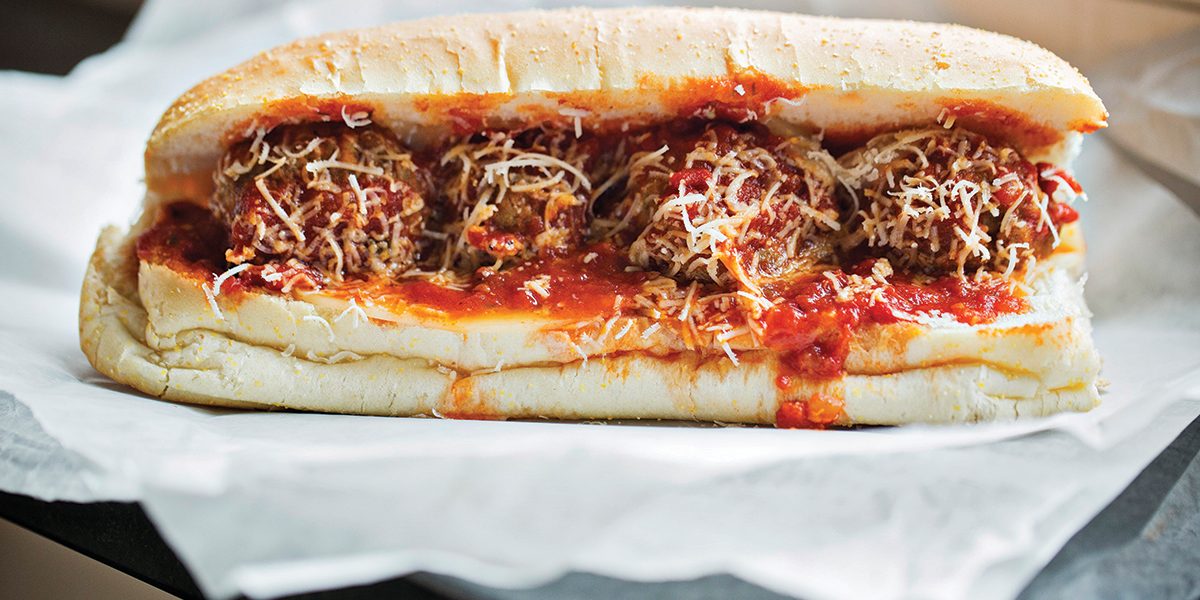Food & Drink
Changing of the Guard
A son continues his father’s legacy in Little Italy.
Overlooked in the recent rash of Little Italy restaurant deaths was
a rebirth. As diners mourned the passing of longtime staples like
Rocco’s Capriccio and Caesar’s Den, Greg Mugavero quietly re-opened his
father’s sandwich shop, which, for more than six decades, epitomized the
neighborhood’s flavor. In many ways, Mugs’ Italian Bistro is about more
than food. It’s about paying homage to family and tribute to a
neighborhood’s past.
Marion Mugavero, known to all as Mugs, began selling meatball subs,
sausage sandwiches, and cold cuts at the corner of South Exeter and Fawn
streets in 1947. Two years ago, at the age of 89, he finally closed
Mugavero’s Lunch and allowed his son, Greg, to renovate and revive it.
The younger Mugavero, a contractor by trade, modernized the space while
preserving its interior layout and nostalgic feel. The old wooden lunch
counter is now dark granite. He reupholstered the original stools. On
the white walls hang photos of the old neighborhood and the old country,
some of which Greg snapped himself during a trip to his family’s
homeland in Sicily.
Mugs’ re-opened in July with a new name but the same simple offerings
Marion favored. Greg added salads, a chicken-bacon-ranch panini, even
an all-beef Hebrew National hot dog dubbed “The Rabbi.” But the meat of
the menu remains cold cut, sausage, and meatball subs.
Made fresh
from scratch every morning, the meatballs are delicately seasoned,
hand-shaped, and addictively delicious. The meatball sub features four,
topped with provolone cheese and homemade tomato sauce. Like his father,
Greg serves his version on rolls from F&S Maranto Inc., a Baltimore
bakery that opened in 1914, around the same time his grandparents came
to Little Italy from actual Italy.They’re a perfect fit. The impossibly
soft sub roll somehow sops up the tangy Parmesan cheese-sprinkled tomato
sauce without turning to mush.
Greg recently rolled out breakfast and serves items like pizza and
brisket sandwiches. He wants to serve, as his dad did, whatever his
customers crave. In a neighborhood that’s undeniably changing, he takes
pleasure in preserving a slice of the past.
“People are concerned that the neighborhood is going to be more commercialized and it’s going to disappear,” he says.
He shakes his head. “On this corner, it ain’t.”
